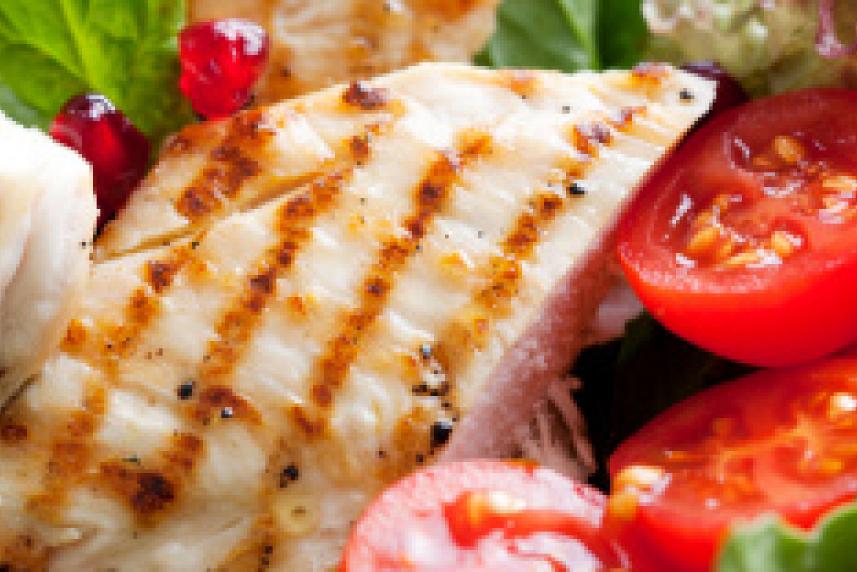Best Foods to Eat for All-Day Energy
Do this to prevent a mid-day crash

Does this sound familiar? You drag all day wishing for a nap instead of a meeting or workout only to get your second wind around bedtime that prevents you from getting the sleep you know you need. If this is you, it’s time to examine your diet. Eating the wrong foods at the wrong times may actually be to blame for daytime sluggishness and amped-up evenings.
For starters, research shows not getting enough sleep may encourage poor food choices that zap energy during the day and disrupt sleep at night, setting you up for a vicious cycle. And a new study found eating fattier foods caused people to feel sleepier during the day while eating more carbs made them more alert. “Food choices you make day in and day out have a tremendous impact on your energy level,” says Elisa Zied, MS, RD, New York City–based dietitian and author of Nutrition at Your Fingertips. “They can either sap you or support you to get through your daily to-do list.” Zied says carefully timing your meals and distributing your nutrients can prime you for energy that holds steady all day.
“Look to food before any supplement to boost your energy,” says Zied. “Food—especially nutrient-rich foods—provide energy in the form of calories as well as nutrients that help your body use the energy.” But you have to gas up at the right times and the biggest challenge may be having the right foods on hand at the right times.“Planning ahead is a great defense against that sapped, listless feeling that can strike midday or anytime you’re not as nourished as you could be,” she says. Here’s how to plan for energy—and bring out your inner early bird.
Your Meal Plan
“I recommend people eat small frequent meals that are high in protein and fiber with a small amount of added fats—approximately every 3 hours—to keep their energy even throughout the day,” says Sarah Mirkin, RD, a dietitian in Beverly Hills, CA. “The combo of protein and fiber will digest slowly so that there aren’t blood sugar highs and lows that cause spikes and crashes in energy.” Zied agrees with this rule of thumb. Fiber is readily available in all kinds of healthy carbohydrates—whole grains, fruits, vegetables, and legumes—which digest more slowly than processed white flour and sugar-laden treats, keeping you fuller longer and your energy levels steadier. “When people eat meals or snacks with only carbs they will have instant energy due to a blood sugar spike and they will usually feel fatigue and hunger after an hour or so,” Mirkin says. “The only time this may be beneficial is in the evening before bedtime.” Since fats are tough to digest, Mirkin recommends keeping them low in the evening for a good night’s sleep.
Eat for Energy
Mirkin and Zied suggest the following sample menu options for steady energy and sound sleep. Eat breakfast within an hour of waking up and then a snack or meal every 3 hours:
For starters, research shows not getting enough sleep may encourage poor food choices that zap energy during the day and disrupt sleep at night, setting you up for a vicious cycle. And a new study found eating fattier foods caused people to feel sleepier during the day while eating more carbs made them more alert. “Food choices you make day in and day out have a tremendous impact on your energy level,” says Elisa Zied, MS, RD, New York City–based dietitian and author of Nutrition at Your Fingertips. “They can either sap you or support you to get through your daily to-do list.” Zied says carefully timing your meals and distributing your nutrients can prime you for energy that holds steady all day.
“Look to food before any supplement to boost your energy,” says Zied. “Food—especially nutrient-rich foods—provide energy in the form of calories as well as nutrients that help your body use the energy.” But you have to gas up at the right times and the biggest challenge may be having the right foods on hand at the right times.“Planning ahead is a great defense against that sapped, listless feeling that can strike midday or anytime you’re not as nourished as you could be,” she says. Here’s how to plan for energy—and bring out your inner early bird.
Your Meal Plan
“I recommend people eat small frequent meals that are high in protein and fiber with a small amount of added fats—approximately every 3 hours—to keep their energy even throughout the day,” says Sarah Mirkin, RD, a dietitian in Beverly Hills, CA. “The combo of protein and fiber will digest slowly so that there aren’t blood sugar highs and lows that cause spikes and crashes in energy.” Zied agrees with this rule of thumb. Fiber is readily available in all kinds of healthy carbohydrates—whole grains, fruits, vegetables, and legumes—which digest more slowly than processed white flour and sugar-laden treats, keeping you fuller longer and your energy levels steadier. “When people eat meals or snacks with only carbs they will have instant energy due to a blood sugar spike and they will usually feel fatigue and hunger after an hour or so,” Mirkin says. “The only time this may be beneficial is in the evening before bedtime.” Since fats are tough to digest, Mirkin recommends keeping them low in the evening for a good night’s sleep.
Eat for Energy
Mirkin and Zied suggest the following sample menu options for steady energy and sound sleep. Eat breakfast within an hour of waking up and then a snack or meal every 3 hours:
- Breakfast: Omelet with 1 egg yolk, 4 whites, and whatever vegetables you have with 1 slice of whole grain toast OR peanut butter on whole wheat toast with a glass of low-fat milk
- AM Snack: 6 ounces Greek yogurt, any kind of fruit, 2 tablespoons of nuts OR 1 slice cheese and 3 whole-grain crackers
- Lunch: Large salad with grilled chicken breast, avocado, garbanzo beans, tomato, pepper, onion, 2 teaspoons of olive oil plus vinegar OR tuna on a whole wheat English muffin with fruit
- Afternoon Snack: 1/4 cup almonds and 1 piece of fruit OR 1 cup veggies dipped in 3 tablespoons hummus or black bean dip
- Dinner: Grilled salmon with vegetables and a baked sweet potato OR a big salad with avocado, chicken or turkey breast, and a whole grain roll
- PM Snack: 1 graham cracker and a glass of fat-free milk OR 18 pretzels OR 3 cups popcorn



